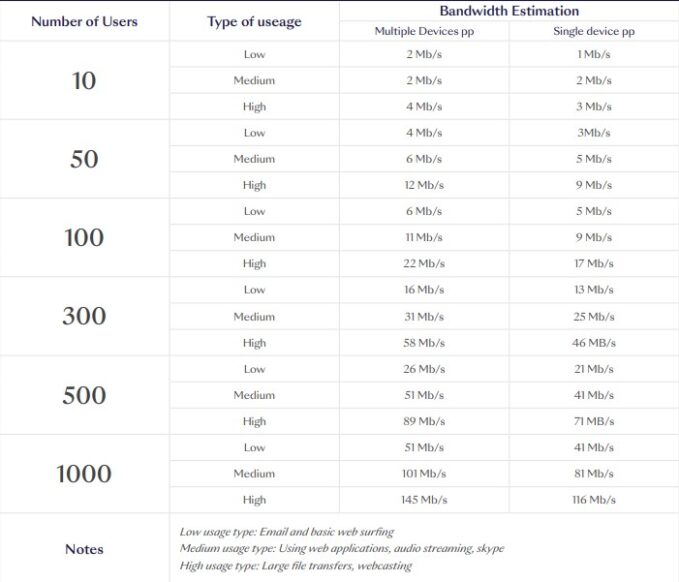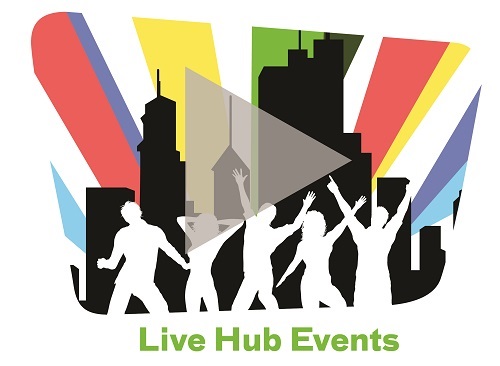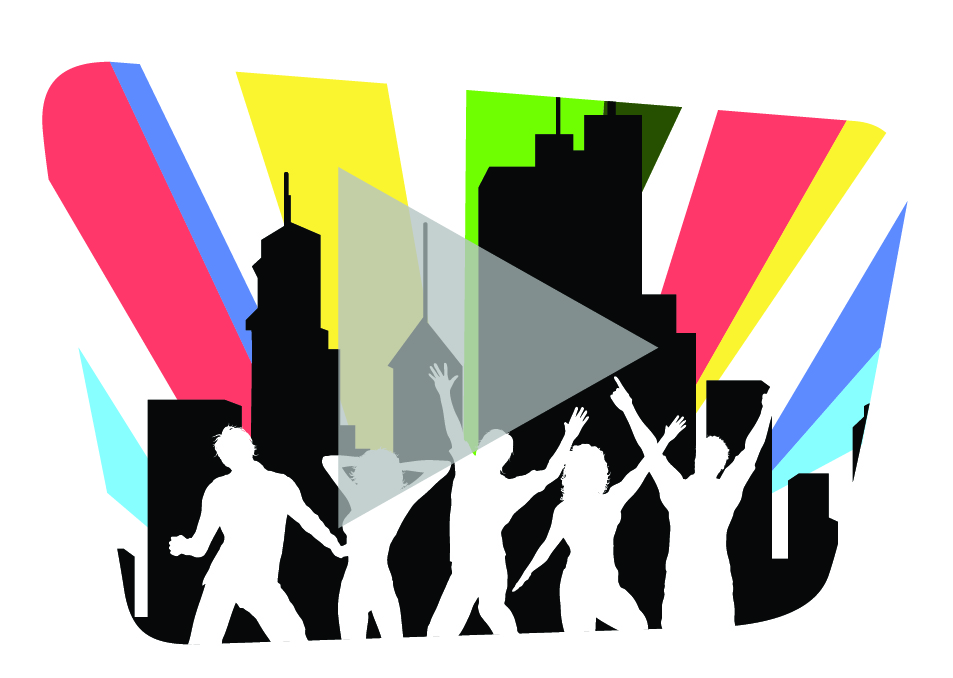How To Calculate/Plan Internet Access
For Your Event
Don't let your attendees suffer in WIFI Jail
If you are planning an event where attendees need to be connected to the internet to thrive then this article is for you. In this article we will discuss the pitfalls to avoid when planning an event that needs great internet, terminology associated with event wifi, and teach you how to calculate your bandwidth needs for your event WIFI.
Event Wifi Terms Every Event Planner Should Know
Bandwidth - This is the amount of data that can be transmitted per second and is usually measured in megabits per second or MBPS. 1000mbps = 1gb worth of data.
Dedicated Bandwidth - this is bandwidth that is specifically set aside by your hotel or venue for your event.
Access Point - This is basically like a cell phone tower that broadcast the WIFI to create the wireless network. If the access points are spread to far apart or incorrectly configured it will cause some peoples internet experience to be poor. Check with your venue to make sure the general session room has enough access points to support the user amount in the physical space.
Network Name - Also known as an SSID this is what people see when they connect to the events network.
IP Address - just like most people are given access cards for their office buildings WIFI networks hand out an IP address to devices connecting to it. This serves as both access and control to make sure everything can function together on the same network.
Secure Network - This is when a wifi network requires a password to connect to it. It is super important when your users at your event have sensitive information that they are working with on their computers/devices.
VPN - you make have a client ask you about having a VPN set up with their office for security reasons. A VPN is a fancy way of saying "tunnel" where basically a secure tunnel is made through the internet and data is protected until it gets to the other side of the VPN. Remote workers will often use these to access their company network securely.
Questions To Ask Your Venue About Their Internet Coverage & Support
- The first question you should ask is what their rates are for internet. Sometimes hotels will charge a per person cost or a per device cost. If it is the latter then you should consider possibly bringing in a temporary event wifi network. These often can be lower cost and even better internet depending on your venue and the infrastructure they have in place.
- If you need support during your event is it off-site support or do they have someone on-site that can respond quickly to problems.
- Does the venue have large enough cabling or infrastructure to meet your total bandwidth needs so even all users at usage peaks will have a good internet experience?
What type of internet connection does your venue have?
DSL, Cable and Fiber are all types of internet connections. But there is a difference in speed for each type which makes it important to evaluate your needs when picking the right one:
DSL – DSL (Digital Subscriber Line) is a type of connection that works through a phone line, because of this it is widely available (anywhere with a phone line it’s possible to get). This internet option has limited speeds. DSL is one of the slower types of connections.
Cable – Cable internet uses cable modems and Cable TV lines to provide internet. It’s a little more reliable and faster than DSL. This is a very popular internet option.
Fiber – Fiber internet is becoming very common in households, and businesses. With fiber, you are able to get really fast speeds up to1 gigabit per second. It works by using fiber cables comprised of glass which send a light signal through refraction from point A to point B.
Satellite truck – In areas broadband isn’t available satellite trucks can be deployed to bring internet to where you are. One of the main limitations is speed, to work it has to reach a satellite in orbit thousands and thousands of miles away and come back to earth with the data. Another downside is satellite internet can be affected by the weather just like your satellite TV at home. With heavy rains and snows, you may lose signal. The major bonus to satellite internet is you can get internet anywhere you can park a truck.
Microwave – A high-speed wireless internet where radio signals and transmission towers are used instead of cables to provide service. Transceiver equipment is installed at receiving locations such as a business. Bandwidth speeds are faster than satellite internet. To use Microwave internet, site access is required building. Trees can prohibit microwave internets use. Microwave internet is extremely reliable because you are not dependent on underground cables which can be cut during surrounding construction and more. Microwave internet tends to cost more than cable, fiber, or DSL internet. However, with increasing popularity internet prices, are expected to decrease.
Cellular tower – It is possible to use cellular networks to pull internet from using a cellular hotspot. This is not reliable in some areas where cell phone service is spotty or non-existent. Most event wifi companies when needing to bring in outside WIFI will use cellular bonding units to get a stronger internet connection.
How to estimate how much bandwith you'll need for your meeting or event
How To Read The Chart Below:
- Select the amount of users that you are estimating to be at your event.
- Then select if they are going to be using multiple devices at the same time like a laptop and a phone.
- After you determine device count choose which level of use they will have.
PLEASE NOTE: The usage listed below is per person and not total for that many users.
How to choose usage level:
- Low Usage: This level usage is best for people who are just doing light email checking and web browsing.
- Medium Usage: This level is perfect for people who are using web based applications, streaming audio, or using skype.
- High Usage: This level is perfect for large file transfers, downloading presentations or videos, or webcasting.


Create a separate network specifically for your event production needs
Even if you have made all the right calculations for your event network and how much bandwidth you need from the venue or your temporary internet solution you need to make sure the needs of the event are prioritized of normal traffic. If you are live streaming your event then you may want a separate bonded WIFI unit for your stream.
You will most definitely want to set up a separate WIFI network for your production needs like cash registers, check in stations, or other event needs. This network should be the priority and have dedicated bandwidth specifically for those needs. Make sure you talk to the inhouse IT team or your Event WIFI company to ensure that is the case.
We hope that this article has helped prepare you for planning your WIFI or internet access for your next event. Of course if you find yourself needing a temporary internet solution for your event or want onsite support when your venue doesn't offer that then give us a call! We can support a wide range of internet options for large corporate events, outdoor festivals, and more!

